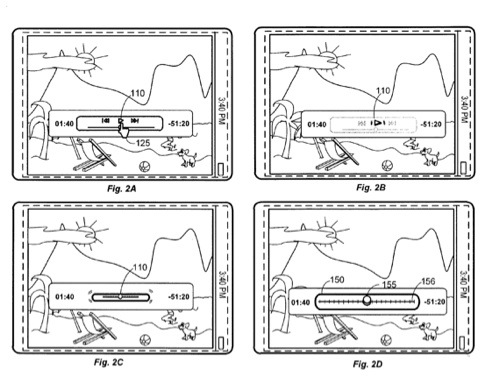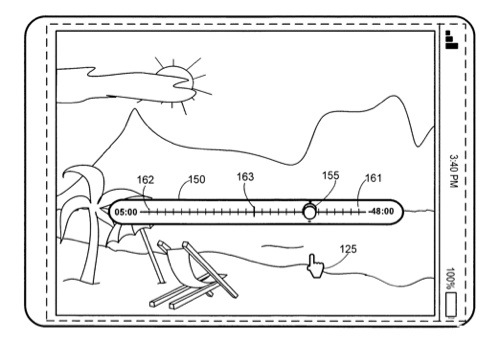Apple patent is for morphing user interface control object
An Apple patent (number 20120144330) for morphing an user interface control object has appeared at the U.S. Patent & Trademark Office. Systems and techniques are disclosed for morphing a first control object in a user-interface into a second control object.
According to some implementations, the first control object is provided for display on a graphical user interface presented on a display of a device. The first control object can be configured to control a parameter of a presentation of media content in response to a first input. An interaction input is received indicating a user interaction with the first control object. In response to the interaction input, the first control object can be morphed into a second control object, replacing the first control object.
A second input can be received, the second input indicating an intention of the user to change a value of the second control object. And, the value of the second control object can be adjusted according to the second input.
Here's Apple's background on the invention: "Modern computer operating systems often provide a desktop graphical user interface ("GUI") for displaying various graphical objects. Some examples of graphical objects include windows, taskbars, docks, menus and various icons for representing documents, folders and applications.
"A user can interact with the desktop using a mouse, trackball, track pad or other known pointing device. If the GUI is touch sensitive then a stylus or one or more fingers can be used to interact with the desktop.
"Some computer applications include knobs, sliders and other controls that can be manipulated by a user through a pointing device or by touch input. For example, graphical objects emulating knobs and sliders of a mixing board or other hardware device can be included in the GUI of an audio or video application. The user can use a mouse or finger to rotate the knob control or move the slider control as desired to control a parameter of the application."
Gary Flint is the inventor.














